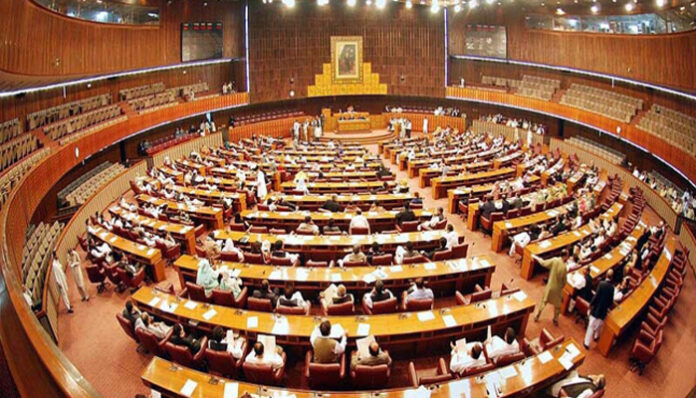ISLAMABAD: A parliamentary committee on Tuesday sought replies from the ministries of finance, power, petroleum and commerce against the government’s move to include taxes, surcharges and positive fuel adjustment in the industrial tariff for export-oriented sectors.
The committee was informed that the textile industry had earlier urged the Ministry of Commerce (MoC) to submit an urgent summary to the Economic Coordination Committee (ECC), requesting the implementation of SRO 12 (of January 1, 2019) and withdrawal of the Power Division’s letter (January 13, 2020) that asked for inclusion of taxes, surcharges and positive fuel adjustment in the industrial tariff.
The letter stated that the export-oriented sector would be exposed to the inclusion of taxes, surcharges and increase in tariff because of fuel adjustment in the billing. The initiative could swell electricity price from Rs11.70 per unit to Rs20 per unit for industrial sector.
Before the new initiative, the financial cost surcharge, Neelum-Jhelum surcharge, taxes, fixed charges and positive fuel adjustment were not part of the tariff set by the PTI government for export-oriented sectors.
‘SUSPICIOUS MOVE’
National Assembly’s Standing Committee on Commerce Chairman MNA Syed Naveed Qamar termed the government’s move as suspicious.
He said the government couldn’t do away with the ECC’s decision and instead constituted a three-member committee to probe the matter.
Committee member Sheza Fatima said the inclusion of taxes in the industrial tariff would ultimately lead to the textile industry’s closure.
Commerce Secretary Sardar Ahmed Nawaz Sukhera admitted that the Neelum-Jhelum surcharge, financial surcharge, quarterly surcharge and fuel adjustment had been restored. “But basic tariff structure of fuel for the export sector has not been changed. The exporters had already lost cases against taxes in the courts.”
Sukhera further informed that the MoC had completed its consultation with the stakeholders to formulate new textile policy and it would be introduced soon.
“The policy is aimed at increasing cotton production and boosting exports in the textile sector.”
The committee members wanted to know what the new policy had to offer for the textile sector.
The commerce secretary told the committee that he would give a detailed briefing once the policy was approved by the competent authority.
Sukhera admitted that cotton production has decreased to a historic mark of 9 million bales. “The country has an estimated annual consumption of 14-15 million bales against the total production of 9 million bales this year.”
He informed the committee that for cotton import, ECC had already allowed duty-free import from Afghanistan via Torkham border.
Pakistan and China were in collaboration to introduce new seed technology in the country and China was likely to set up 10 cotton research centers in Pakistan, the the committee was told.
The commerce secretary further appraised the committee of the steps taken to enable the textile sector to meet the challenges and attain global competitiveness.
The committee constituted a sub-committee under convener ship of MNA Muhammad Yaqoob Sheikh to consider the issue of concessions given to the textile sector and their sudden withdrawal by the various government departments.
Four important amendments were approved during the meeting as the committee considered “The National Insurance Corporation (Reorganization) (Amendment) Bill, 2019”, “The Anti-Dumping Duties (Amendment) Bill, 2019”, “The Trade Organizations (Amendment) Bill, 2019”, and “The Export Development Fund (Amendment) Bill, 2019” and recommended to be passed by the House.
The meeting was attended by MNAs Muhammad Yaqoob Sheikh, Raza Nasrullah, Khurram Shahzad, Sajida Begum, Usman Ibrahim, Rana Tanveer Hussain, Tahira Aurangzeb, Shaista Pervaiz, Shaza Fatima Khawaja, Syed Javed Ali Shah Jillani and Syed Fakhar Imam besides senior officials from the Ministry of Commerce and Federal Board of Revenue.




